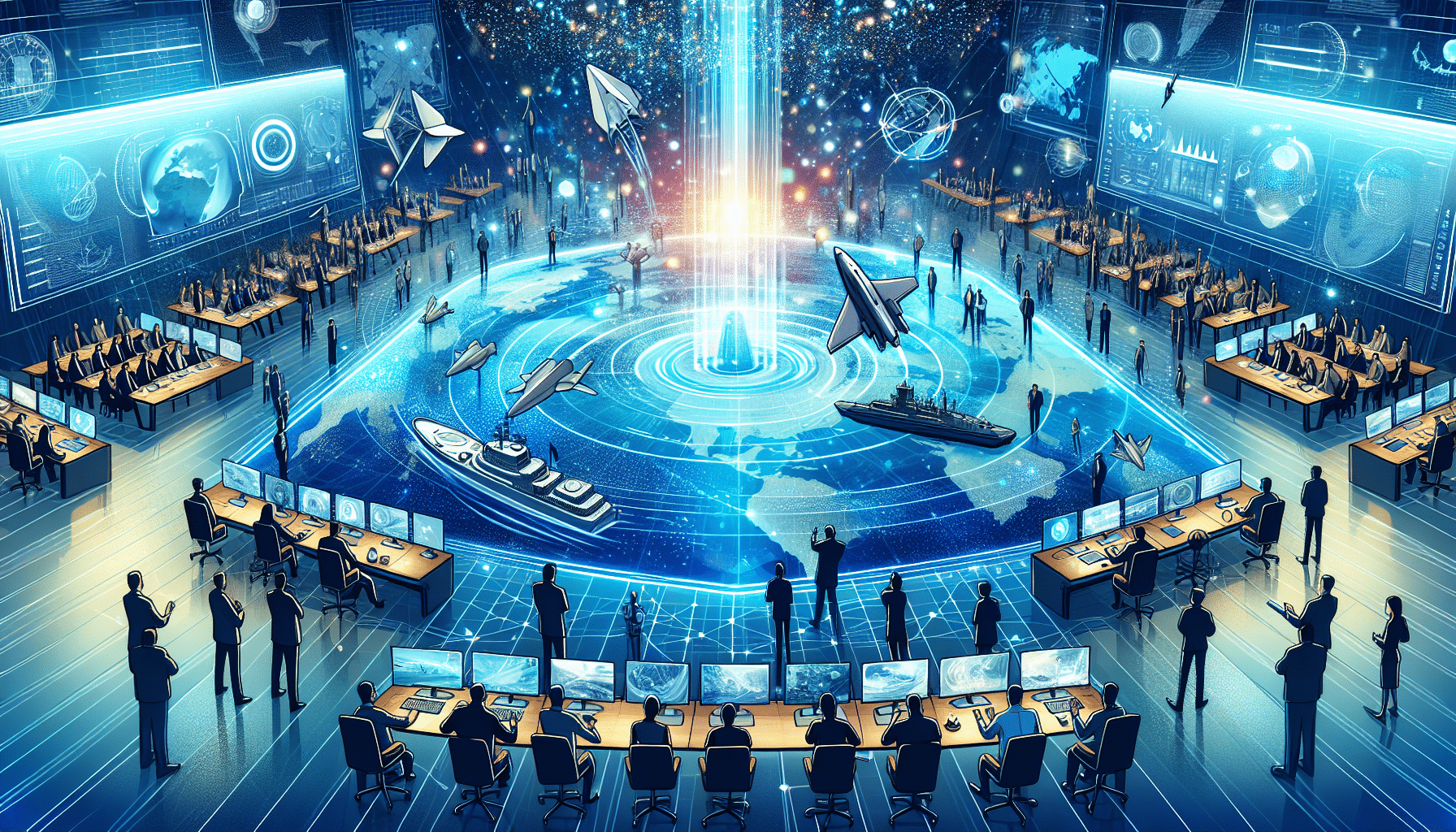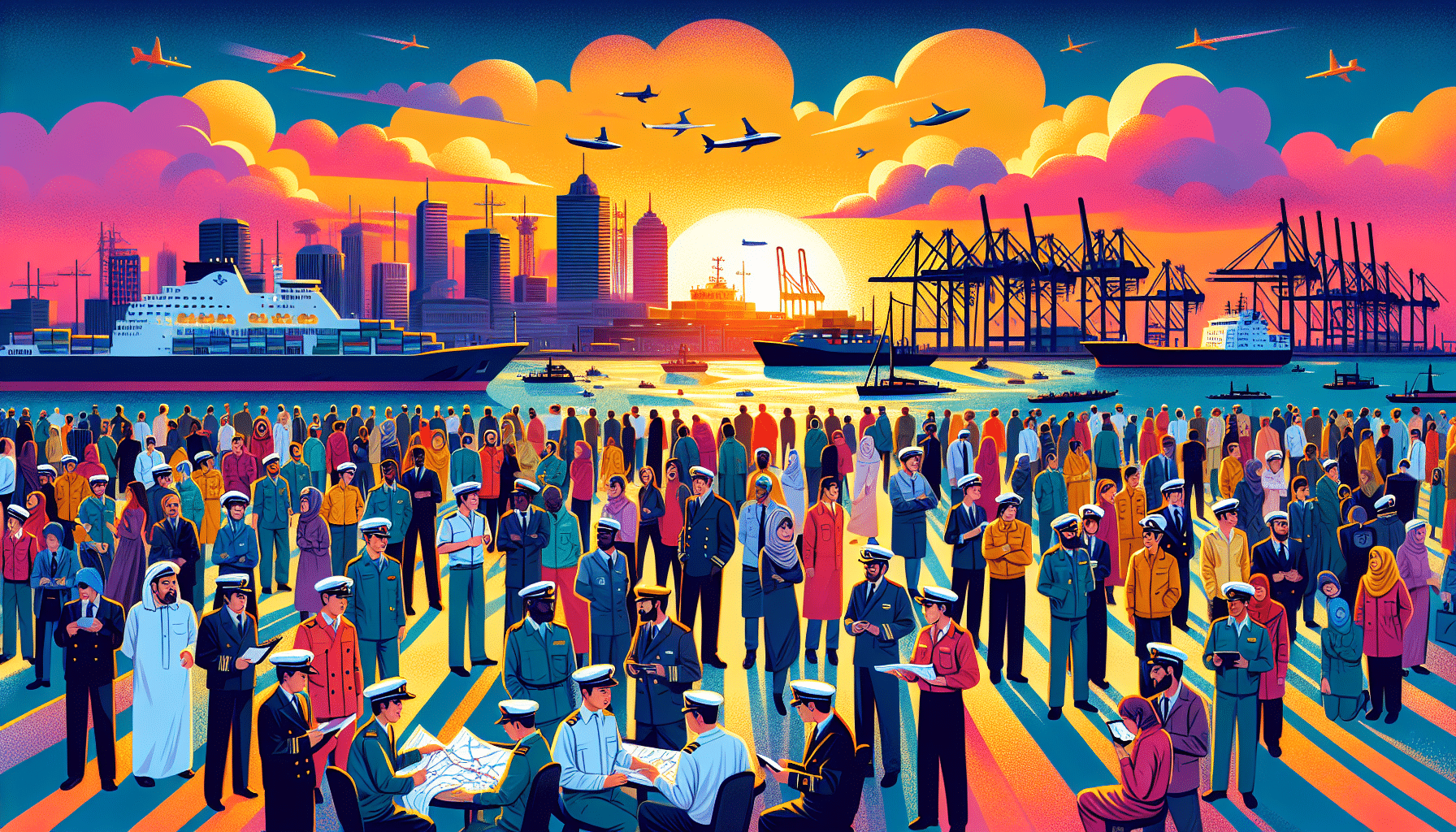Introduction to Virtual Maritime Conferences
With rapid technological advancements and the persistent need for international collaboration, the naval industry is increasingly turning to virtual maritime conferences as a principal medium for networking, knowledge sharing, and innovation. Faced with global challenges such as climate change, geopolitical tensions, and the need for sustainable development, these online events offer a viable and efficient alternative to traditional in-person conferences. As we delve into this subject, we will explore the various facets of virtual maritime conferences, their benefits, potential drawbacks, and what the future might hold for these digital gatherings.
The Shift to Virtual: Catalysts and Adoption
The transition from face-to-face meetings to virtual venues in the naval industry was significantly accelerated by the global COVID-19 pandemic. Health risks and travel restrictions made physical gatherings difficult, if not impossible, prompting organizers to pivot to virtual platforms. This shift was facilitated by advancements in digital technology, including more reliable video conferencing tools, virtual reality (VR), and augmented reality (AR), which have enhanced the interactivity and effectiveness of online meetings.
Benefits of Virtual Maritime Conferences
Accessibility and Inclusion
One of the most pronounced benefits of virtual maritime conferences is their accessibility. Participants can join from anywhere in the world, without the need for travel, making these conferences inclusive of a broader range of industry experts and stakeholders. This increased accessibility encourages a richer diversity of ideas and perspectives, vital for tackling complex global issues such as maritime security and environmental conservation.
Cost-Effectiveness
Virtual conferences significantly reduce the costs associated with venue hire, travel, accommodation, and other logistical expenses. This affordability allows more participants to attend and can enable organizers to allocate more resources toward enhancing the content and technology of the conference.
Advanced Networking Opportunities
Modern virtual conference platforms incorporate sophisticated networking tools such as AI-driven matchmaking, virtual meet-ups, and interactive Q&A sessions. These features facilitate meaningful connections between participants, potentially leading to collaborations and innovations that might not have occurred in a conventional conference setting.
Challenges of Virtual Maritime Conferences
Technical Issues and Accessibility
While technology enables virtual conferences, it can also act as a barrier. Not all potential participants may have access to reliable internet connections or advanced computing equipment, particularly in developing countries. Additionally, technical glitches and cybersecurity concerns can affect the smooth running of events and the overall participant experience.
Reduced Personal Interaction
Despite advances in technology, virtual conferences can struggle to replicate the spontaneous interactions and informal networking opportunities that are a hallmark of in-person events. The lack of physical presence can potentially lead to reduced engagement and fewer serendipitous encounters that often lead to innovation and collaboration.
Innovative Features and Tools in Virtual Maritime Conferences
To enhance interactions and participant engagement, virtual maritime conferences are increasingly leveraging cutting-edge technologies. For example, virtual reality setups can simulate a conference environment where attendees can walk around, interact with exhibits, or converse informally with other attendees. Augmented reality presentations can provide interactive visualizations of maritime technology, making complex data more accessible and engaging.
The Future of Virtual Maritime Conferences
Looking forward, the future of naval industry events likely includes a blend of both virtual and physical elements, a format known as hybrid conferences. These events will aim to combine the best aspects of both setups: the extensive reach and convenience of virtual platforms with the intimate and engaging nature of in-person interactions. As technology continues to evolve, we can expect virtual maritime conferences to become even more immersive and effective, cementing their role as a crucial tool in the naval industry’s future.
Virtual maritime conferences have emerged as an indispensable part of the naval industry’s approach to global collaboration and problem-solving. While there are challenges to address, the benefits—ranging from reduced costs and increased accessibility to advanced technological capabilities—make a compelling case for their continued use. As we navigate the future, the integration of new technologies and strategies will undoubtedly enhance the efficiency and impact of these digital platforms, helping to shape a resilient and innovative maritime industry.






